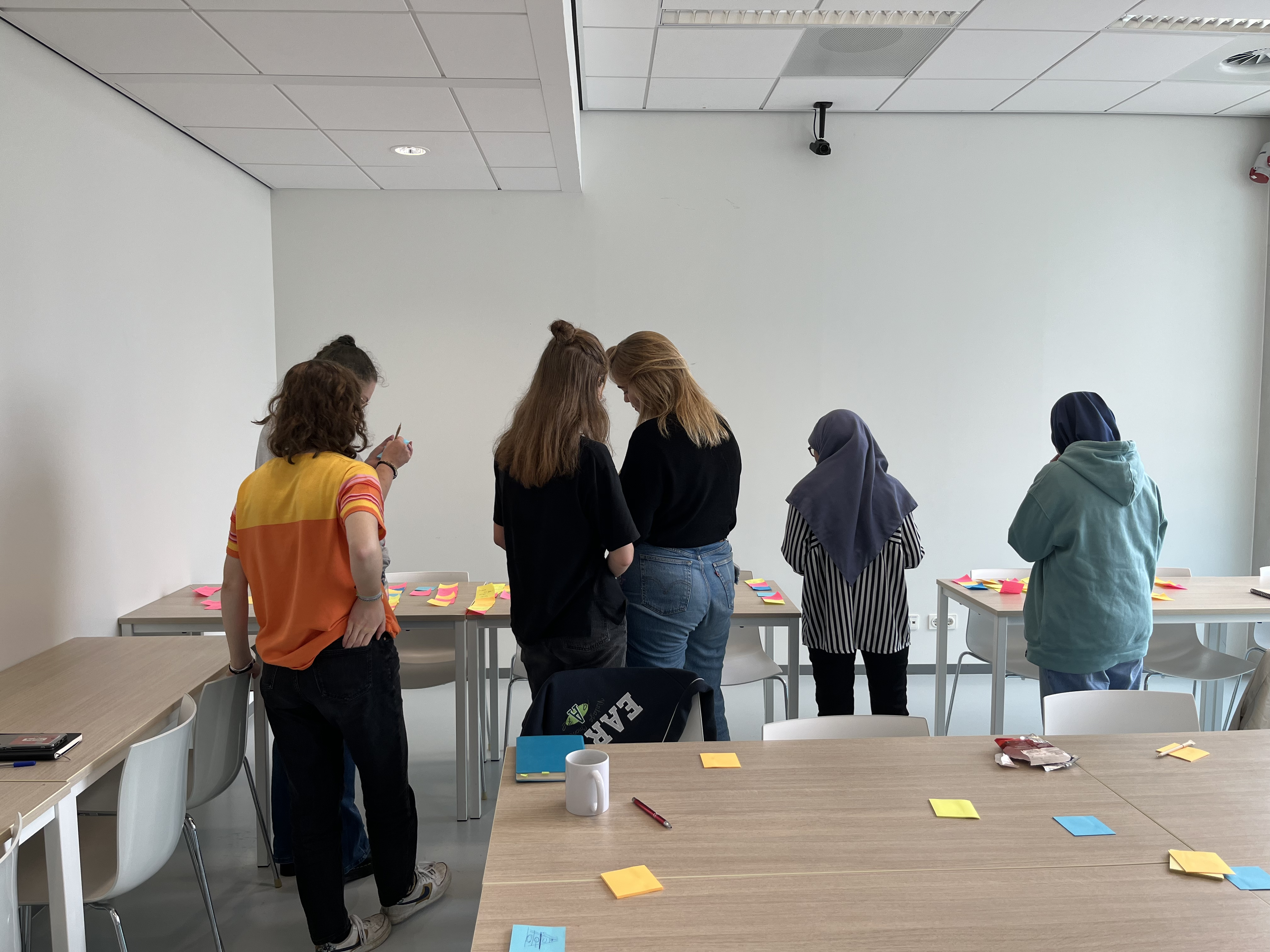A collaborative initiative with Maskerclass, TU Delft and Delft student organisations to strategically improve mental well-being at TU Delft.
Project Background and Approach
Well-being and resilience are essential components that contribute to student success. This project takes a co-creative and bottom-up approach to enable a long-term cultural change. As it intends to empower students (organizations) with awareness of the well-being roadmap (incl. TU services), normalizing dialogue about mental wellbeing within the university and stimulating peer support.
Board members of the student organizations are supported during a six-month process in setting up and implementing sustainable policy on mental well-being within their associations and developing their own well-being roadmap for their association and members.
-
The Maskerclass project brings together many stakeholders including the TU Delft Study Climate, ESA Communications, Delft Student organizations and other relevant stakeholders such as student psychologists or student communities (through workshops, or panel discussions).
Maskerclass 2022-2023: Delftse Studenten Corps (DSC), Delftse Studenten Bond (DSB), Laga, Study Association Leeghwater (3mE faculty)
Maskerclass 2023-2024: Student societies – Virgiel, Moeder Delftsche and PPI Delft (Indonesian Students Association of Delft) and study associations - W.I.S.V. 'Christaan Huygens', S.V.N.B. Hooke and S.G. "William Froude"The cooperation between different communities brought connection and confidence to work on cultural change. The varying types, scales and age of the student organisations encourages openness to diverse perspectives and exchange of idea, in a safe space.
-
The tone and approach are in line with the experiences of students, something that is essential for the success of such initiatives. Sophie Schmeets is seen as an expert through her personal experiences. She was also a student association board member during her time at university and is open about her personal experiences regarding the subject of mental health. She is skilled in creating an inspiring and motivating atmosphere in which it is also possible to learn about a serious subject in an enjoyable manner.
-
For TU Delft, participation in this project was an opportunity to strengthen the bond with the student community. The participating boards have become more familiar with the services and expertise of TU Delft.
Outcomes and Insights
-
The programme offered motivation to work on a policy relevant for each organization, by enabling a personalized focus on a subject that is important and relevant for each of them.
-
The collaboration between study and student associations, brings the total student life picture together in one shared experience. It stimulates being open to the perspectives of fellow students and the different approaches within associations.
-
The Maskerclass method offered structure and guidance that felt appropriate with the desired tone and approach for students. The active involvement of TU Delft employees was also valued as it fostered a stronger awareness and connection to the available TU Delft support services and was seen as encouraging for future collaborations between associations and the university.
-
The project helped students to increase their knowledge and awareness about mental well-being. Especially receiving practical know-how and tips about what they can or cannot do for others with respect to mental well-being of others. For example, realization about the power of listening and about the limits to what they can do to help others dealing with mental health issues.
Evaluation and experience
"Students that participated in this programme look back on a positive experience. Through this process, mental health has become a more tangible topic and provided inspiration and motivation to develop and share well-being policies for their respective associations. All participants also confirmed that the taboo surrounding the subject within the association has decreased."
"Initiatives such as Maskerclass show that students are motivated to contribute to the student community and when they are given sufficient trust and guidance they can make a great positive impact. They also provide a valuable channels to exchange insights into students’ experience and knowledge at TU Delft."
Project Status
Study Climate will finance and facilitate a second pilot during September 2023 – February 2024. This second pilot is meant to deepen the lessons learned and share the experiences with more staff and student communities. There will be 2 groups this year, a Dutch-speaking and an English-speaking group.
To stay updated on the outcomes and next steps, keep an eye on this page!
If you are interested to learn more about the project, or participate in our pilot we'd be happy to hear from you.
